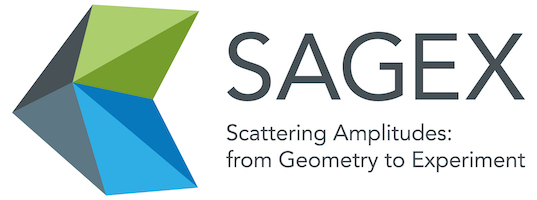Heavy particles and the binary inspiral problem
Kays Haddad
Link to PDF
Abstract
This thesis comprises five novel publications in the fields of scattering amplitudes and effective field theories (EFTs) which focus on describing binary inspiralling systems in general relativity. These pub- lications fall into two groups. The first group formulates and studies a new EFT: the Heavy Black hole Effective Theory (HBET). Three publications fit into this category, and present novel results pertaining to the post-Minkowskian scattering of spinning black holes, new on-shell variables tailored to computations in the large mass limit, and a prescription for how to obtain HBET amplitudes by double copying those of the Heavy Quark Effective Theory. Lessons learned from these studies are combined with other EFT techniques in the remaining two publications. This second group approaches tidal effects from within a quantum-field-theoretic framework, first without spin, then for spin-1/2 particles (which can be thought of as slowly spinning celestial bodies).
Each publication is introduced by an initiation describing key tools and concepts pertinent to the publication.
Funded in part by the European Union’s Horizon 2020 Framework Program under the Marie Skłodowska-Curie grant agreement No. 764850 (SAGEX).
 |
 |